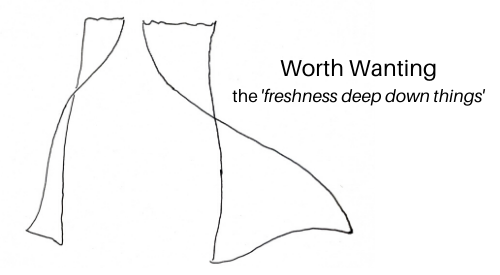The practice of having encounters daily.
Every encounter–ad hoc, planned, or regularly scheduled, lasting a few minutes, days, or one and off a lifetime–has, as it unfolds, phases of receptivity, risk and reflection. Likewise, encountering, as a practice, involves being open to awareness of the presence of others and othernesses, familiar or not, in our vicinity; putting ourselves forward to invite or accept an invitation to engage in encounter; reflecting on the encounters we’ve had (or haven’t had), on ourselves as encounterers, and on encounters which may be waiting for us; and championing hospitality, friendship and exploration as portals to lastingness. God’s passion is encountering.
Unfamiliar others: a process of reconnaissance. Put yourself where ufos (unfamiliar others) tend to be by deliberately going where you haven’t been or doing what you haven’t done. Does someone or something there–exercising powers, expending energies, exploiting potentialities–intrigue or impress, disturb or dismay you in any way? Boldly introduce yourself.
Familiar others: a process of de-familiarization. Re-recognize the fact that the familiar other is, in fact, not us, not ours, nor of us, nor for us, nor (wholly) by us. Consider some specific thing we do or think as expressing our particular livingness as a person, a possessor, an integrator of parts and qualities, a producer and a self-provider. Contrast this with some comparable action or reaction of that familiar other. Boldly explore together the similarities and differences.
Simple encounters and compound encounters are ‘minted’ and issue into circulation in the world of value when, in the case of simple encounters, at least one of the participants in an interaction, or in the case of compound encounters all, are ready to make common cause with the livingness of the other, and to own and reflecrt on the experience that ensues.
